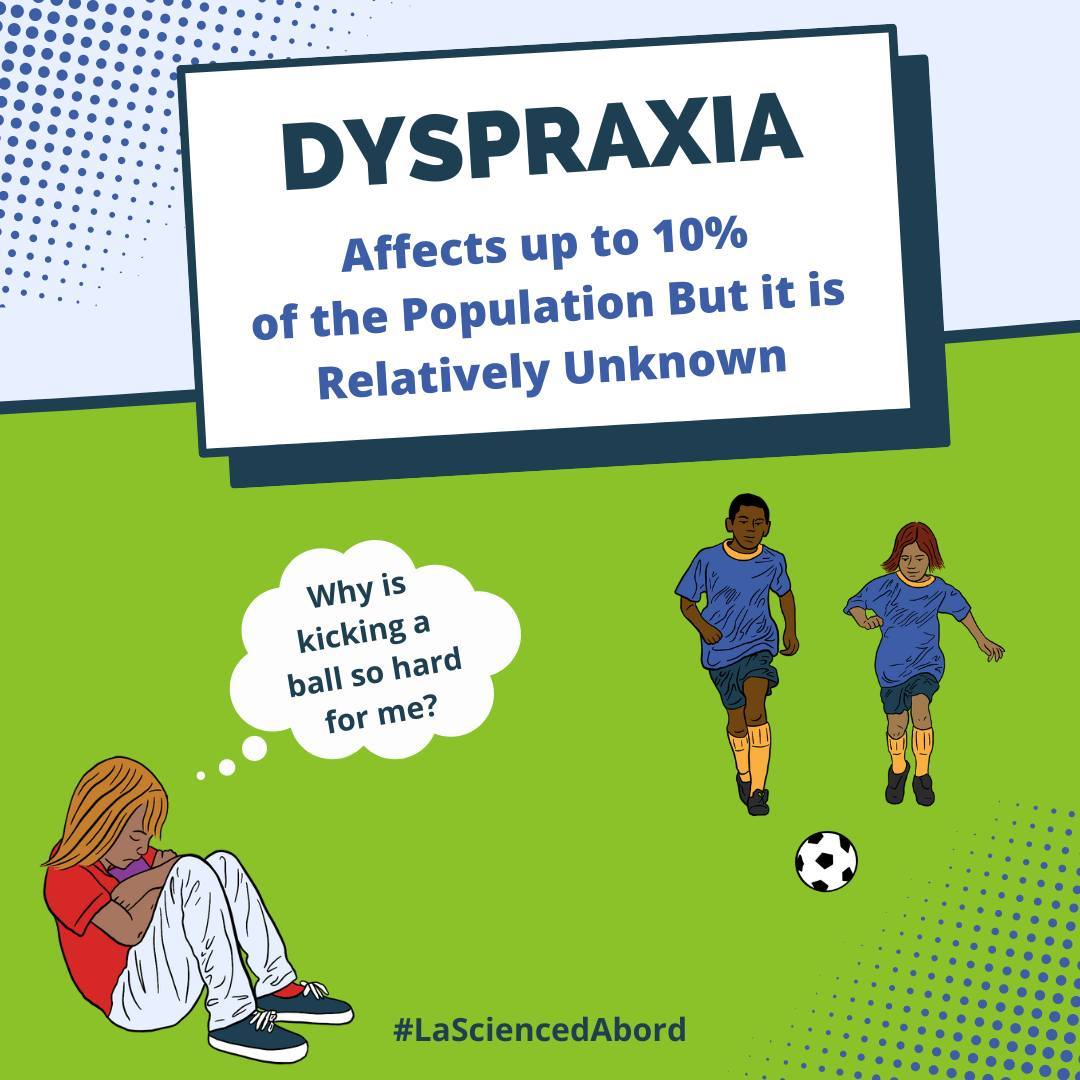Click on the sharing buttons to link to the post in your own tweet, Facebook post, email, or even WhatsApp message.
This post was vetted by experts, so you can be confident it’s accurate.

You have probably heard of dyslexia, but have you heard of dyspraxia?
Dyspraxia is a neurodivergent disorder caused by the disruption of signals between the brain and body. How or why this happens is not fully understood (1,2,3).
Each experience is different, but dyspraxia will generally affect (1,4):
Motor skills:
- Unnatural, awkward, or abrupt body movements
- Lack of spatial awareness
- Difficulties learning new movements or adapting acquired ones to new situations
Organization and planning:
- Trouble organizing thoughts and surroundings
- Time management, attention, or memory difficulties
Speech and language:
- Long or awkward pauses during conversation
- Poor enunciation
Dyspraxia is usually diagnosed in young children because the signs are more obvious, like problems with sitting, walking, tying shoes, or using scissors. Adults can be diagnosed too, though! Signs include clumsiness, awkwardness, and disorganization (1,5).
Dyspraxia (1,2,3,4,6):
- Affects 5 to 10% of people
- Often co-occurs with other neurodivergent conditions (e.g., ADHD, anxiety, dyslexia, autism)
- Is not a learning disorder, but the difficulties it brings can make learning a big challenge
- Is up to 4 times more common in boys, but girls are often diagnosed when older
- Is not curable and will usually persist throughout life
- Is manageable with therapies to help improve motor skills, muscle strength, and coordination
A better understanding of dyspraxia is critical. Undiagnosed children are often dismissed as clumsy or excluded from team activities, which can damage self-esteem. Early diagnosis allows them to access the support they need sooner so they can reach their full potential (1,4,7,8).
Sources: https://tinyurl.com/SUFDyspraxia
Share our original Tweet!
You have probably heard of dyslexia, but have you heard of dyspraxia?
— ScienceUpFirst | LaScienced'Abord (@ScienceUpFirst) October 18, 2022
Dyspraxia is a neurodivergent disorder caused by the disruption of signals between the brain and body. How or why this happens is not fully understood. #ScienceUpFirst
🧵[1/7] pic.twitter.com/PiUDQFcreP
View our original Instagram Post!
